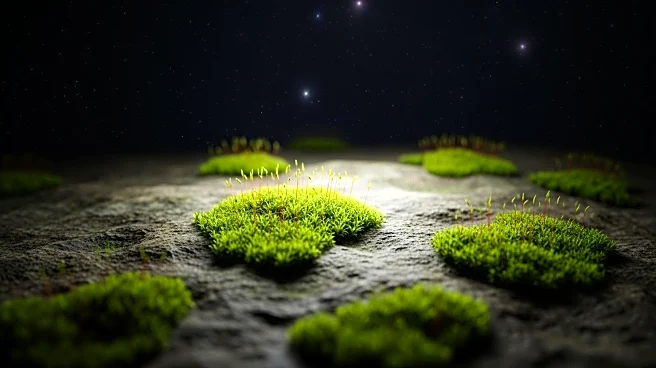What's Happening?
Researchers have discovered that moss spores can survive the harsh conditions of space for nine months, as evidenced by a study conducted aboard the International Space Station (ISS). The study, led by Tomomichi
Fujita of Hokkaido University, involved exposing moss spores to vacuum, microgravity, high levels of ultraviolet radiation, and large temperature swings. Despite these conditions, over 80% of the sporophytes remained viable, with 89% able to germinate upon return to Earth. This resilience suggests that life on Earth possesses intrinsic mechanisms to endure space conditions, potentially aiding in the construction of ecosystems on the moon and Mars.
Why It's Important?
The survival of moss spores in space has profound implications for future space exploration and the possibility of creating sustainable ecosystems beyond Earth. This research could inform strategies for developing life-supporting environments on extraterrestrial bodies, such as the moon and Mars, facilitating long-term human habitation. The study underscores the resilience of life forms and their potential role in space colonization efforts, marking a significant step in astrobiology and space exploration.













